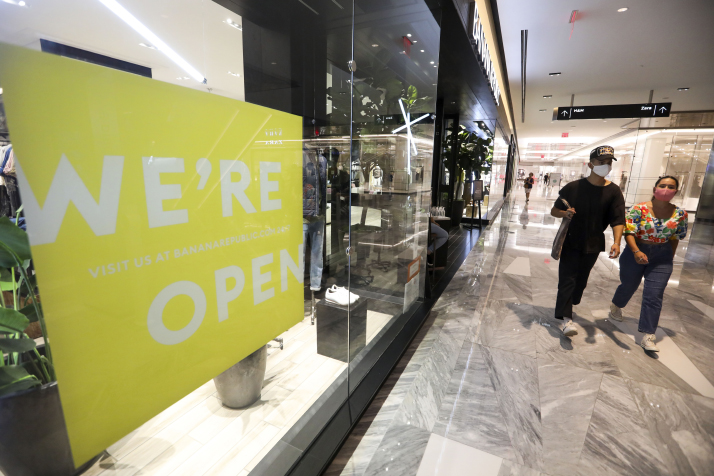| World |
| Pressing need for a viable vaccine underlines necessity of cooperation | |
|
|
 Scientists work at a COVID-19 vaccine laboratory in Argentina on August 14 (XINHUA)
It has become increasingly evident that some countries lack the national capacity or will to control the virus, and thus are banking on effective vaccine development and distribution. Indeed, as long as the virus is uncontrolled in any single jurisdiction it poses a global threat. Consequently, even those countries capable of control consider a vaccine necessary to protect themselves from subsequent resurgence of infection from foreign arrivals. Research updates Several media outlets are running real-time vaccine updates sites, and with almost two dozen publicly known efforts underway, the constant trickle of developments makes it difficult to determine where precisely "we" are in terms of having a vaccine. There are some indications that a vaccine might be available for some people as early as later this year or more broadly by mid-2021, but who precisely, where precisely, and when precisely remain as uncertain as whether any of them will actually work and do more good than harm. COVID-19, like other coronaviruses, is tricky when it comes to vaccine development. Multi-year efforts to develop vaccines for the severe acute respiratory syndrome and the Middle East respiratory syndrome have not been successful yet given the specific ways these RNA viruses infect human cells. More importantly, it is difficult to create effective vaccines for diseases attacking the upper respiratory tract that don't in turn create adverse reactions worse than the disease itself. Further, new vaccines aiming at a virus that mutates quickly always face challenges. In COVID-19 these challenges are acute. For example, some studies indicate that its antibodies decay rapidly, within three months by some estimates, particularly among those who experienced mild forms of infection, and there's no evidence yet that they ever confer immunity from a second infection. It's not yet clear what this means for potential vaccine efficacy, but we do know that many of the vaccines currently under development require more than one dose. Given the peculiarities of the disease and in many cases the competitive and non-cooperative approaches of some countries and companies, we might still be years from an effective global vaccine solution even if some viable vaccines emerge sooner. More pessimistic assessments suggest COVID-19 might be with us a lot longer than we hope—that we might have to learn to live with it as we have with other diseases like HIV/AIDS. With that in mind, there have been some promising developments in learning how the disease attacks the body and why it affects some people worse than others. They have suggested new treatments that are currently being developed. It might well be the case that the arrival of a safe and effective vaccine will be outpaced by the development of a cure, and we might ultimately conclude that it is safer and easier to treat the disease than prevent infection. While the term "vaccine" has more cachet in contemporary discourse than "treatment," progress on either front will be welcomed. That said, we know that simple behavioral adjustments like wearing masks, washing hands, social distancing and self-quarantining significantly reduce incidence rates.  (Top) People go shopping in New York City, the U.S., on September 9, the day when shopping centers, earlier closed because of COVID-19, were allowed to reopen Scientists work at a COVID-19 vaccine laboratory in Argentina on August 14 (XINHUA)
Need for cooperation All of these challenges and their global impact indicate the need for international cooperation. While there have been some public efforts for cooperation, on the whole the process appears a matter of competitions between nations with various implications for security that go well beyond immediate disease control. Somewhat infamously, the U.S. has refused to cooperate on vaccine development while simultaneously undermining WHO. On the one hand, these responses appear to dovetail with the Trump administration's America First and zero-sum approaches in international affairs. On the other hand, perhaps the biggest reason the U.S. won't cooperate is that in many respects, it can't. New drug development in the U.S. is primarily the business of a private pharmaceutical industry, one that is a global leader, fields a powerful political lobby, and above all is motivated by securing intellectual property rights and profits. In this respect the Trump administration is triply bound. First, as a pro-free enterprise political party, Trump's Republican commitment to the supremacy of market-based solutions over those fostered by the government remains unshakable, all the more so perhaps in an election year when alienating a powerful industry could both hurt his campaign for a second term and undercut vaccine development. Second, the U.S. Government simply doesn't have the capacity these private industries have. The best scientists and laboratories are in the private sector, as are production capacities. Furthermore, existing legal frameworks for development and testing and associated liabilities are suited more for corporations than government. Third, unable to command or organize these competitive industries better than they can do themselves, the U.S. Government is reduced to trying to guess which companies are likely to be successful. This is the fundamental purpose of the White House vaccine taskforce, known as Operation Warp Speed: Identify the most promising candidates, place large advanced orders with them, providing capital for accelerated development, and thus assure Americans are first in line if a successful vaccine emerges. Of course, one might not emerge, and even if it does, we are likely to discover that its efficacy, already problematic, will be undermined without a global vaccine strategy that reduces disease incidence worldwide, and in turn, that slows mutations. In this respect, Trump's failed approaches to disease control are likely to intersect in even more devastating and self-defeating ways given longer-standing and still adamant attacks on multilateralism. His shame-and-blame approaches to COVID-19, particularly aimed at China and WHO, have been revealed as a sham by Bob Woodward's new book, Rage (2020), where Trump effectively admitted on tape that he was playing politics with the outbreak. Both COVID-19 and global warming, which can increase the likelihood of new outbreaks in the future, indicate the need to rethink how we respond to global crises in ways that move beyond overlapping private sector/national competitions, particularly as exemplified by the U.S. Already, some theorists are discussing the possible emergence of new health superpowers, and the risk of new health-based hegemony, if not outright imperialism. Those potentialities may become self-fulfilling prophecies given longstanding and worsening trust deficits and insecurities, particularly as COVID-19 makes everyone more vulnerable. Consequently, finding a real solution for global cooperation for the immediate goal of addressing COVID-19 carries existential implications far beyond those already associated with the pandemic. Whether a viable vaccine or more effective treatments emerge, the pressing need to cooperate on multiple fronts through multilateralism indicates that not doing so only increases health and security risks for all. The author is professor of politics at East China Normal University in Shanghai (Printed Edition Title: Existential Implications)
Comments to yanwei@bjreview.com |
|
||||||||||||||||||||||||||||||
|
